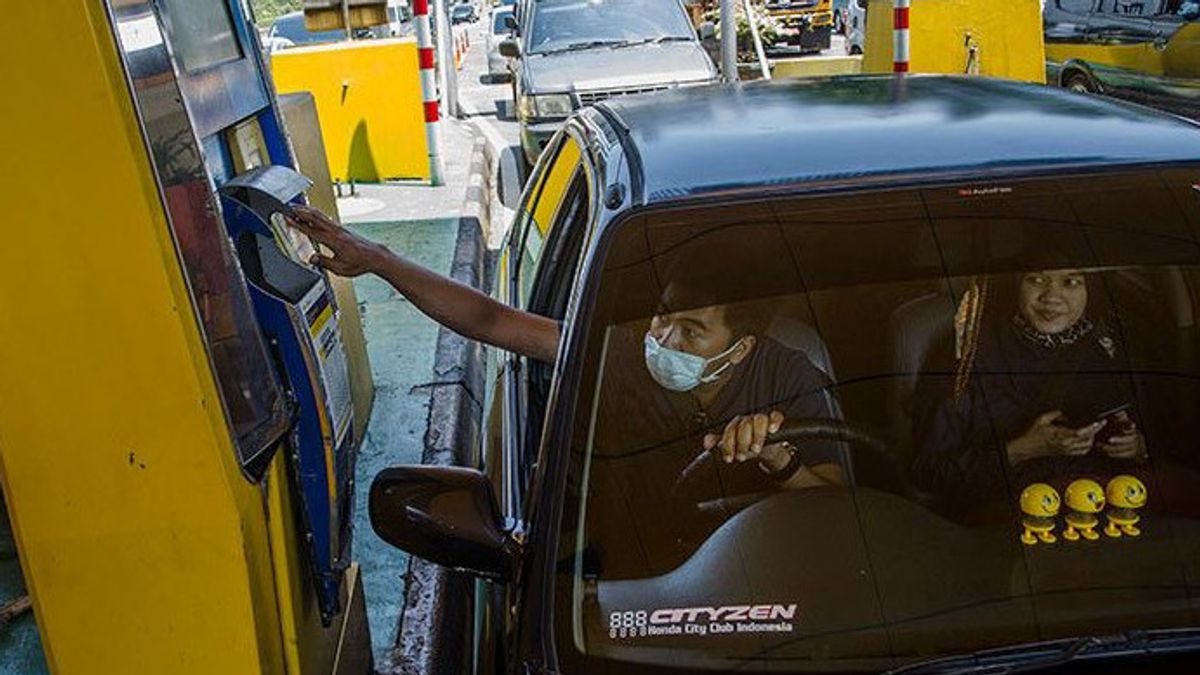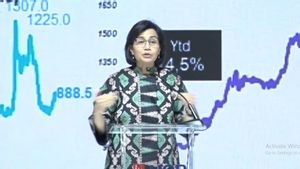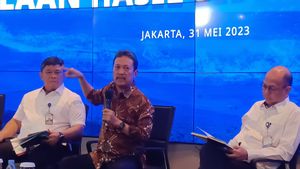JAKARTA - Trial of the implementation of Multi Lane Free Flow (MLFF), the latest technology that presents an automatic payment process for toll road users without having to stop, will continue despite adjustments to the trial schedule that should have been carried out in Bali on June 1, 2023.
For PT Roatex Indonesia Toll System (RITS), the postponement of the MLFF trial schedule in Bali, although regretful, is not a big problem.
"The postponement of the trial schedule is a common thing in a big project," said Gyula Orosz, Director of PT Roatex Indonesia Toll System (RITS), in a statement, quoted Tuesday, June 6.
Gyula further expressed optimism, According to him, this project is still running in close cooperation with BPJT and other stakeholders.
"There may be some delays in schedule, but this is a'student' for big projects like this. We think everything is still going well. The delay in a big project like this is certainly a challenge for us. However, we remain committed and have the same vision as the Indonesian side," said Gyula explained.
"Our vision remains the same: to convey proven technology, cutting-edge technology that will serve the Indonesian people, and will have a significant positive impact on transportation, traffic security, the environment, and the economy," he added.
Meanwhile, Gyula also emphasized that the technology from Hungary used for the implementation of the MLFF had been adapted to the Indonesian environment while still considering local conditions.
Regarding the postponement of this trial, the Expert Staff of the Minister of PUPR for Technology, Industry and Environment as well as Spokesperson for the Ministry of PUPR Endra S. Atmawidjaja said that he would first study the adjustment of his work plans in the future.
Endra hopes that there will be internal problems, they can be resolved immediately and return to work according to plan.
"His party has so far continued to work according to the plan in the bilateral cooperation corridor between Indonesia and Hungary," said Endra.
Meanwhile, the former Head of the Toll Road Regulatory Agency (BPJT) Danang Parikesit, all factors, including the technology, are already on the track, and it remains to be implemented.
"When I live, everything is on track, it is just a matter of sure all stages are carried out," he said.
Multi Lane Free Flow (MLFF) itself is the latest technology in the world that processes payments automatically for vehicles passing on toll roads. Through this technology toll road users can enter and exit without having to stop to pay.
This is possible because MLFF uses System Satellite Global Navigation (GNSS) technology, a system that allows transactions through applications on smartphones and reads via satellite, so that readers' tools on every place on toll roads such as RFID-based technology provide more effective cost solutions.
SEE ALSO:
The GNSS technology will read the Electronic On-Board Unit device, also known as the E-OBU installed in the car and must be activated by toll road users. So, when the vehicle enters the toll road, it will automatically send data to the system center.
The use of MLFF has enormous benefits because it can eliminate queue times to zero seconds. It is hoped that congestion at toll gates that we have often seen, will no longer exist.
Despite being backed up by advanced technology, Gyula Orosz insists this MLFF is not a "plug-and-play" solution, which can be operated independently.
"This is a very complex system where all legs must be well prepared, namely First the system itself; Second, the legislative background; and the three collaborations with other relevant stakeholders, especially the police and toll road operators," he explained.
The English, Chinese, Japanese, Arabic, and French versions are automatically generated by the AI. So there may still be inaccuracies in translating, please always see Indonesian as our main language. (system supported by DigitalSiber.id)
















